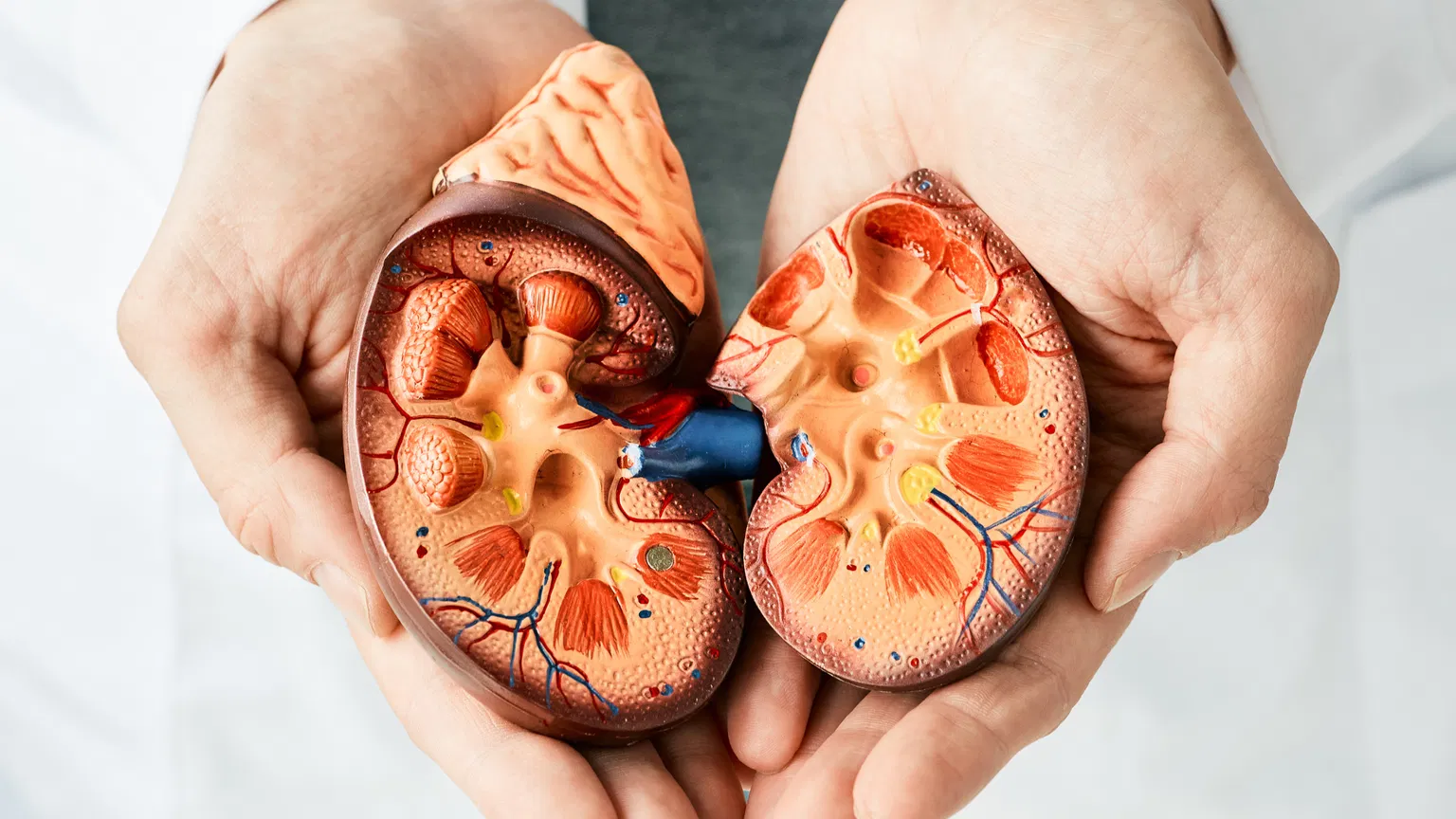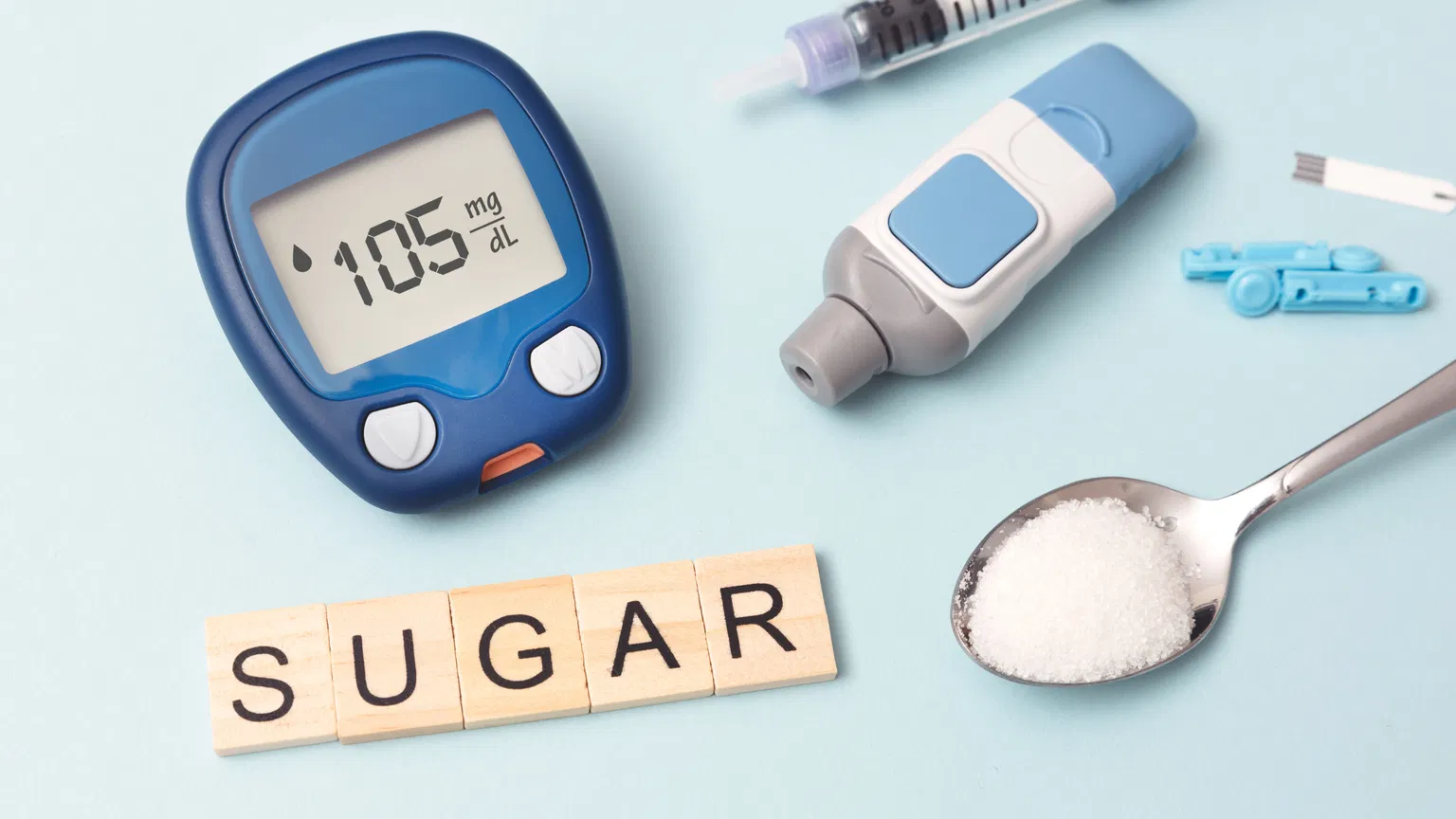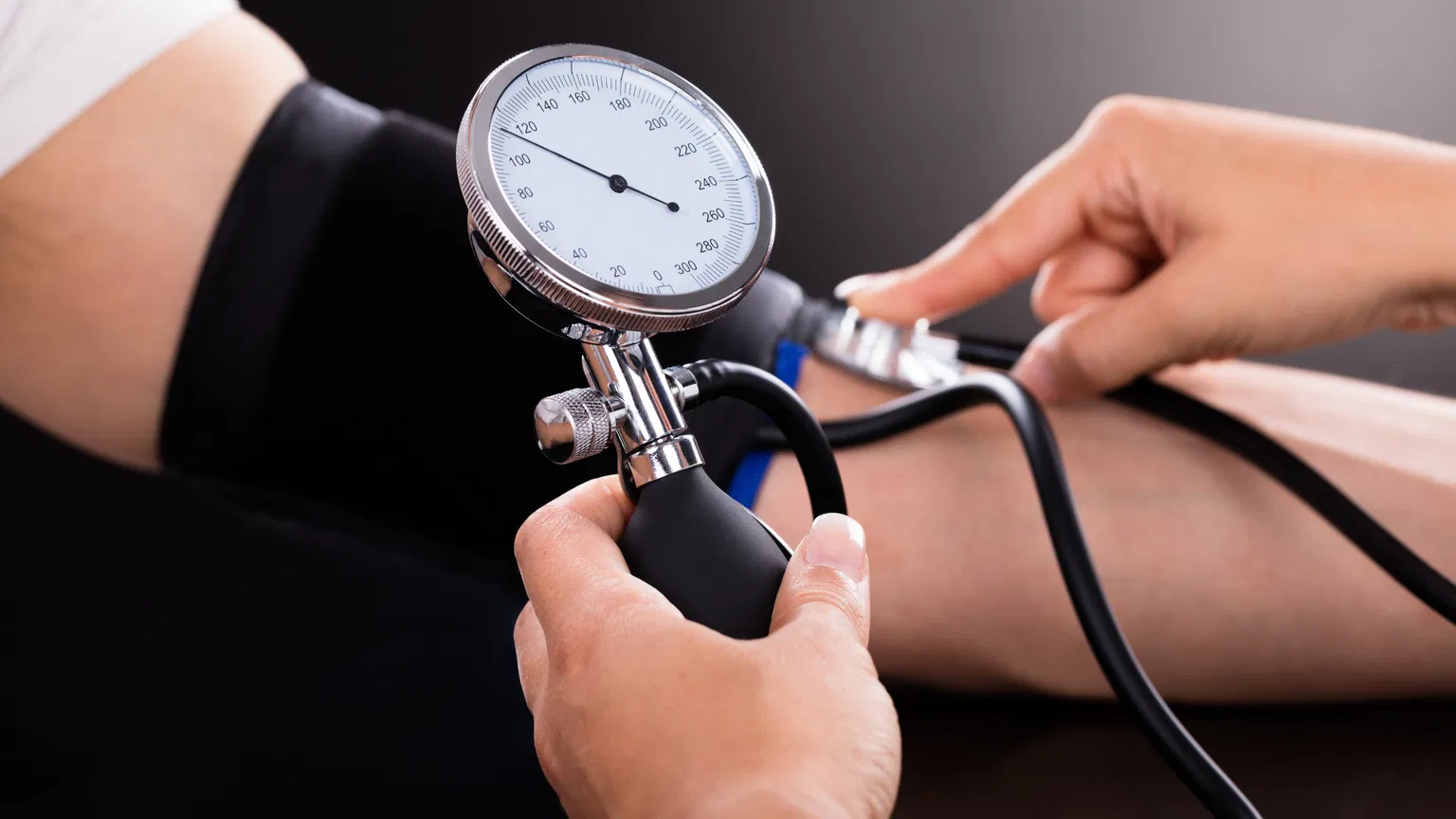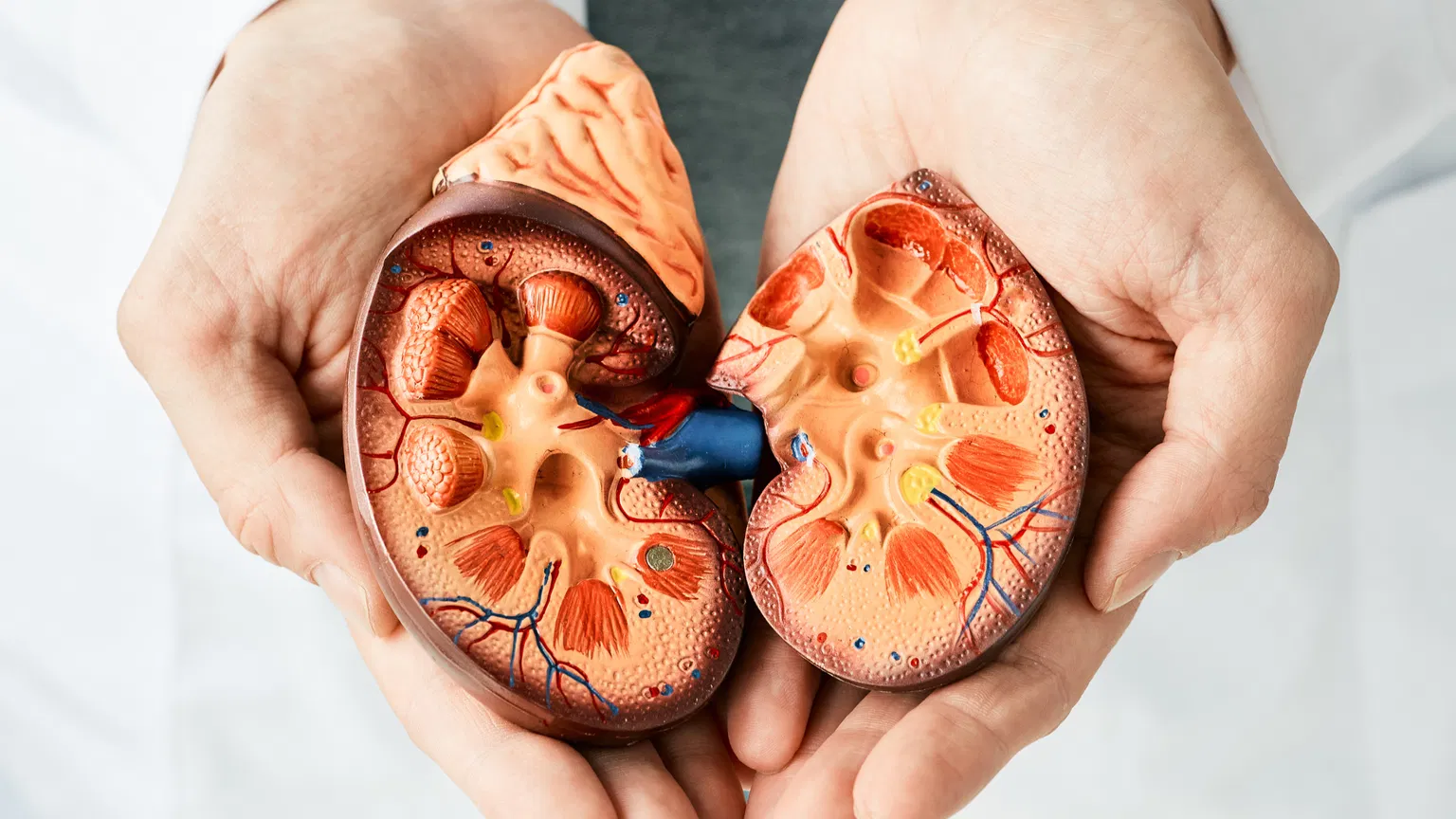How Diabetes and High Blood Pressure Cause Kidney Damage

Introduction
Your kidneys play a crucial role in keeping your body healthy — they filter waste, balance fluids, and regulate blood pressure. But when chronic conditions like diabetes and high blood pressure (hypertension) go unmanaged, they can quietly harm these vital organs. Over time, this can lead to chronic kidney disease (CKD) or even kidney failure, requiring dialysis or transplant.
According to global health studies, diabetes and hypertension account for nearly two-thirds of all kidney failure cases. The damage usually develops slowly and silently, making early detection and preventive care essential.
This blog explains how diabetes and high blood pressure cause kidney damage, the warning signs to watch for, and how you can protect your kidney health before it’s too late.
Understanding the Role of Kidneys in Your Body
Your kidneys are bean-shaped organs that act as your body’s natural filters. Every minute, they filter about 120–150 quarts of blood, removing toxins, waste, and excess fluids to produce urine.
They also:
-
Help maintain the right balance of minerals and electrolytes.
-
Regulate blood pressure by releasing the hormone renin.
-
Control red blood cell production through erythropoietin.
-
Keep bones healthy by balancing calcium and vitamin D levels.
When the kidneys are exposed to persistently high blood sugar or blood pressure, their delicate filtering system gets damaged — leading to a gradual decline in function.
How Diabetes Damages the Kidneys
1. The Role of High Blood Sugar
In people with diabetes, the body either doesn’t produce enough insulin or can’t use it effectively. This leads to high levels of sugar (glucose) in the blood. Over time, this excess sugar can damage the tiny blood vessels (glomeruli) in the kidneys that filter waste.
As these vessels become thickened and scarred, they lose their ability to filter properly, allowing protein (albumin) to leak into the urine — one of the first signs of diabetic nephropathy (kidney disease caused by diabetes).
2. Progression of Diabetic Kidney Disease
-
Stage 1: Early changes, kidneys may work harder (hyperfiltration).
-
Stage 2: Small amounts of protein appear in the urine (microalbuminuria).
-
Stage 3: More protein leakage (macroalbuminuria), indicating moderate damage.
-
Stage 4: Severe decline in kidney function.
-
Stage 5: Kidney failure, often requiring dialysis or transplant.
3. Risk Factors
-
Uncontrolled blood sugar
-
High blood pressure
-
Smoking and obesity
-
Long-term diabetes (over 10 years)
-
Family history of kidney disease
4. Key Symptoms to Watch For
-
Swelling in feet, ankles, or around eyes
-
Fatigue or weakness
-
Changes in urination (frequency or foamy urine)
-
Loss of appetite and nausea
How High Blood Pressure Causes Kidney Damage
1. The Pressure Problem
Your kidneys contain thousands of tiny blood vessels that filter your blood. High blood pressure puts extra strain on these vessels, making them thick and narrow over time. This reduces blood flow, leading to oxygen and nutrient deprivation of kidney tissues.
Eventually, the filtering units (nephrons) get scarred and stop functioning properly — leading to the buildup of waste and fluid in your body.
2. The Vicious Cycle
The relationship between kidneys and blood pressure is a two-way street:
-
High blood pressure damages kidneys.
-
Damaged kidneys cause higher blood pressure.
As kidneys lose function, they produce more renin, leading to further hypertension — creating a harmful feedback loop that accelerates kidney damage.
3. Symptoms of Hypertensive Kidney Damage
-
Increased blood pressure despite medication
-
Swelling in the legs or face
-
Shortness of breath
-
Frequent nighttime urination
Combined Effect: When Diabetes and Hypertension Occur Together
When diabetes and high blood pressure coexist, the risk of kidney damage multiplies. Both conditions affect the blood vessels — diabetes through sugar damage, and hypertension through pressure damage.
Together, they cause:
-
Faster scarring (glomerulosclerosis) of kidney tissue.
-
Increased protein leakage into urine.
-
Higher risk of chronic kidney disease and end-stage renal disease (ESRD).
This combination is one of the most common causes of dialysis worldwide. That’s why strict control of both blood sugar and blood pressure is vital.
Early Signs and Symptoms of Kidney Damage
Kidney disease often progresses silently. Symptoms appear only in later stages, which is why regular health checks are essential for diabetics and hypertensive patients.
Look out for:
-
Swelling in hands, feet, or around eyes
-
Foamy or bubbly urine (protein leakage)
-
Tiredness or weakness
-
Nausea, vomiting, or loss of appetite
-
Difficulty concentrating
-
Uncontrolled high blood pressure
Diagnostic tests:
-
Blood test: Measures creatinine and GFR (glomerular filtration rate).
-
Urine test: Detects protein (albuminuria).
-
Ultrasound: Checks kidney size and structure.
How to Protect Your Kidneys — Prevention and Management Tips
1. Control Blood Sugar Levels
-
Monitor your HbA1c regularly (keep below 7%).
-
Follow a balanced, low-sugar diet rich in fiber and lean proteins.
-
Take prescribed antidiabetic medications or insulin as directed.
2. Manage Blood Pressure Effectively
-
Aim for blood pressure below 130/80 mmHg.
-
Reduce salt intake.
-
Take ACE inhibitors or ARBs (as prescribed) to protect kidneys.
3. Stay Hydrated
Drink adequate water daily (unless restricted by your doctor) to help your kidneys flush out toxins.
4. Eat a Kidney-Friendly Diet
-
Limit sodium, processed foods, and sugary drinks.
-
Include fresh vegetables, whole grains, and healthy fats.
-
Avoid excess protein intake if kidney function is reduced.
5. Maintain a Healthy Lifestyle
-
Exercise regularly (30 minutes a day).
-
Quit smoking and limit alcohol.
-
Maintain a healthy weight to reduce strain on kidneys.
6. Schedule Regular Health Screenings
Even if you feel fine, regular kidney function tests help detect problems early.
-
Check blood sugar, blood pressure, and urine protein levels at least twice a year.
-
Consult a nephrologist if results are abnormal.
When to See a Nephrologist
You should visit a kidney specialist if you experience:
-
Persistent swelling or fatigue
-
Abnormal urine tests (protein, creatinine)
-
Uncontrolled diabetes or hypertension despite medication
-
Family history of kidney disease
Early referral to a nephrologist can help slow or even reverse kidney damage when detected early.
Conclusion
Both diabetes and high blood pressure can silently damage your kidneys over time. The good news is that this damage can often be prevented or slowed with timely diagnosis, healthy lifestyle changes, and proper medical management.
Taking control of your blood sugar and blood pressure today can protect your kidneys for years to come.
CTA:
💙 Don’t wait for symptoms — protect your kidneys before damage begins. [Book a kidney health screening today!]





- Live Stream
- Causes
- Crafts
- Dance
- Drinks
- Film
- Fitness
- Food
- Παιχνίδια
- Gardening
- Health
- Κεντρική Σελίδα
- Literature
- Music
- Networking
- άλλο
- Party
- Religion
- Shopping
- Sports
- Theater
- Wellness
- Art
- Life
- Coding




